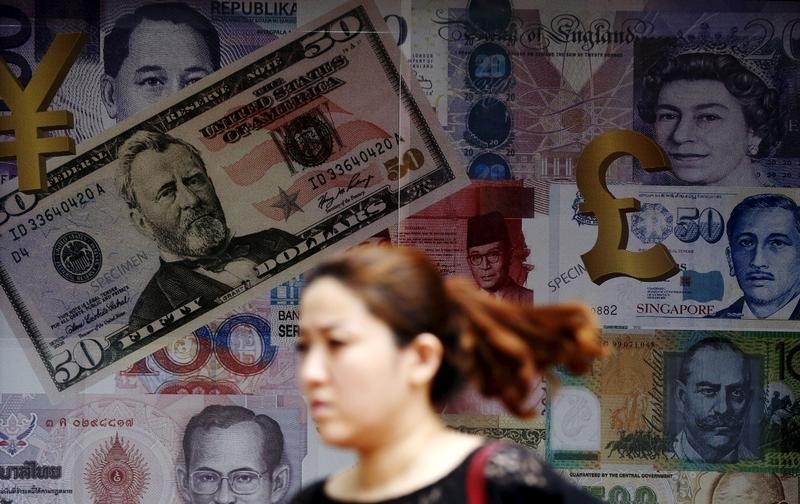* Suspected intervention helps won gain
* Peso snaps 3-session losing run
* Baht strengthens for 2nd straight day
*
*
(Adds text, updates prices)
By Aby Jose Koilparambil
May 30 (Reuters) - The South Korean won bounced back on
Thursday on suspected intervention by foreign exchange
authorities, though escalating Sino-U.S. trade tensions curbed
investors' appetite for riskier currencies.
On Thursday, a Chinese diplomat said that provoking trade
disputes is "naked economic terrorism" in comments that stepped
up criticism of Washington as the standoff between the two
economic heavyweights showed no signs of a quick resolution.
While U.S. President Donald Trump this week dampened any
hopes of an imminent trade deal, China has hinted that it may
use its dominant position as an exporter of rare earths to the
United States as leverage in the tariff war. "The trade war continues to see an expansion in scope, with
the talk of using rare earths as a weapon for the Chinese really
picking up momentum over the past two sessions. This sets a
negative backdrop for Asian currencies as a whole," said
analysts at OCBC Bank in a research note.
As sellers buffeted currencies in several countries
including China, South Korea and Malaysia, some officials have
issued warnings against disorderly currency market movements.
Earlier this week, the Trump administration said nine trade
partners required close attention over currency practices and
the list included as many as six Asian countries - China, Japan,
South Korea, Malaysia, Singapore and Vietnam. The won KRW=KFTC rose as much as 0.5% after the country's
foreign exchange authorities were suspected to have sold dollars
to curb weakness in the currency, several dealers told Reuters.
South Korea's central bank reviews policy on Friday and a
Reuters poll predicted the Bank of Korea would keep the key rate
unchanged despite pressure to ease due to slowing global demand
for the country's exports. Another currency which outperformed its peers on the day was
the Philippines peso PHP= , which added as much as 0.3%, and is
set to snap a three-session losing streak.
The Chinese yuan CNY=CFXS tacked on 0.1% but it remains on
track for its worst month since July 2018, having shed about
2.5% to the dollar since a flare-up in tensions between
Washington and Beijing earlier this month.
The Thai baht THB=TH , the best performing currency so far
this year with a gain of about 2.5%, strengthened for a second
day.
The analysts at OCBC Bank expect some upside for the baht as
Thailand could benefit from the recent rebalancing of the MSCI
emerging markets index.
The Indian rupee INR=IN and the Singapore dollar SGD=
gained slightly, while the Taiwan dollar TWD=TP and the
Malaysian ringgit MYR=MY weakened a bit.
The Indonesian markets were closed on Thursday for a
holiday.
CURRENCIES VS U.S. DOLLAR
Change on the day at 0543 GMT
Currency Latest bid Previous day Pct Move
Japan yen 109.700 109.58 -0.11
Sing dlr 1.379 1.3807 +0.12
Taiwan dlr 31.603 31.581 -0.07
Korean won 1188.600 1193.9 +0.45
Baht 31.780 31.8 +0.06
Peso 52.150 52.29 +0.27
Rupee 69.785 69.83 +0.06
Ringgit 4.195 4.192 -0.07
Yuan 6.911 6.9130 +0.03
Change so far in 2019
Currency Latest bid End 2018 Pct Move
Japan yen 109.700 109.56 -0.13
Sing dlr 1.379 1.3627 -1.18
Taiwan dlr 31.603 30.733 -2.75
Korean won 1188.600 1115.70 -6.13
Baht 31.780 32.55 +2.42
Peso 52.150 52.47 +0.61
Rupee 69.785 69.77 -0.02
Ringgit 4.195 4.1300 -1.55
Yuan 6.911 6.8730 -0.55
